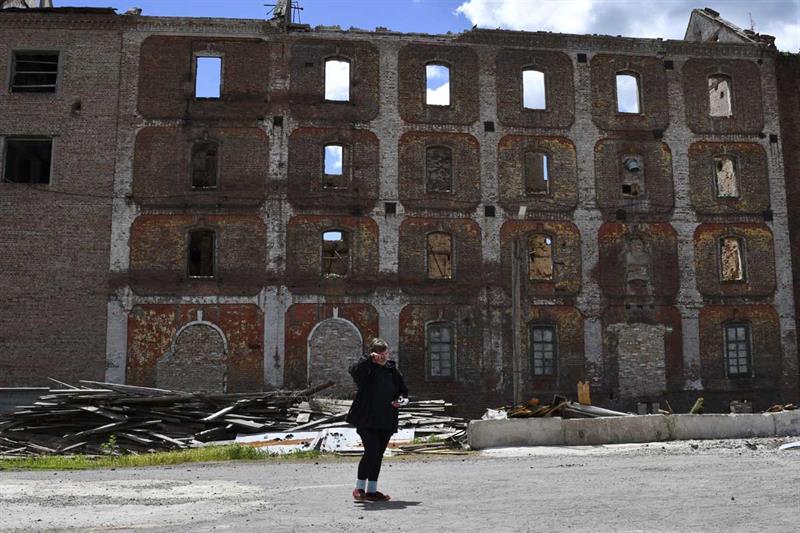
A watchwoman, Albina, reacts in front of the destroyed Peter Dick s mill after Russian shelling in the village of Niu-York, Donetsk region, Ukraine, Monday, May 16, 2022. AP
The war has squeezed global liquidity, especially in developing countries, with investors flocking to less risky assets, the Cairo-based group said in a report issued on Monday.
The cost of credit, the report noted, has already risen since the conflict began, with bond yields soaring with an average of 36 basis points, according to the report which tackled the repercussions of the Russia-Ukraine war on the effectiveness of sovereign wealth funds (SWFs) in achieving sustainable development.
The report divided the SDGs into four groups in terms of the investment opportunities available for sovereign funds. These opportunities exist in a set of SDGs for the real economy and a set of SDGs for sustainable infrastructure.
However, the report added that climate-related SDGs include little investment chances for SWFs and that social SDGs are difficult for SWFs to reach.
Since the beginning of the war in Ukraine, Western countries have imposed economic sanctions on Russia, most notably removing it from the Swift payment system, the report pointed out.
The first quarterly losses for the world's largest sovereign fund since the outbreak of the coronavirus pandemic were reported in April, when the Norwegian SWF announced losses of $74 billion during the first quarter of 2022.
Norway's $1-trillion-plus SWF recorded a 9.4 percent decline in its assets.
Despite facing huge losses due to the decrease in asset prices in Russia since the invasion of Ukraine, Gulf states' SWFs insist on continuing to invest in Russian markets at the expense of European and American investments that withdrew from Russia in implementation of the sanctions.
The rise in global oil prices helped Gulf SWFs not to be significantly affected by the losses that impacted all the major SWFs, and even to achieve unexpected gains, the report stressed.
The report emphasised that there is a significant scope for SWFs to invest in sustainable development sectors and support SDGs due to their long-term and broad-based nature.
The Middle East contains the largest number of SWFs (28 funds), four of which ranked among the 10 richest sovereign funds in terms of assets.
The report concluded by emphasising that in the longer term, the war could fundamentally alter the global economic and geopolitical system if energy trade were transformed, supply chains were reconfigured, payment networks were fragmented, and countries rethought their reserve currency holdings.
Short link: